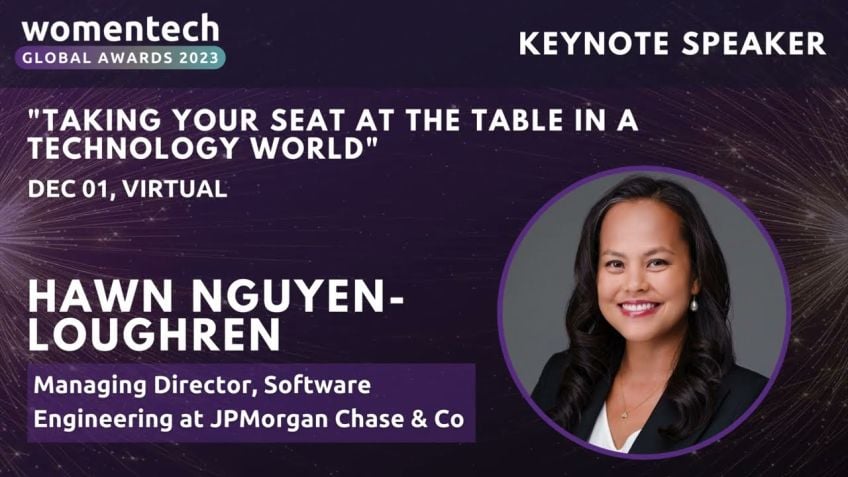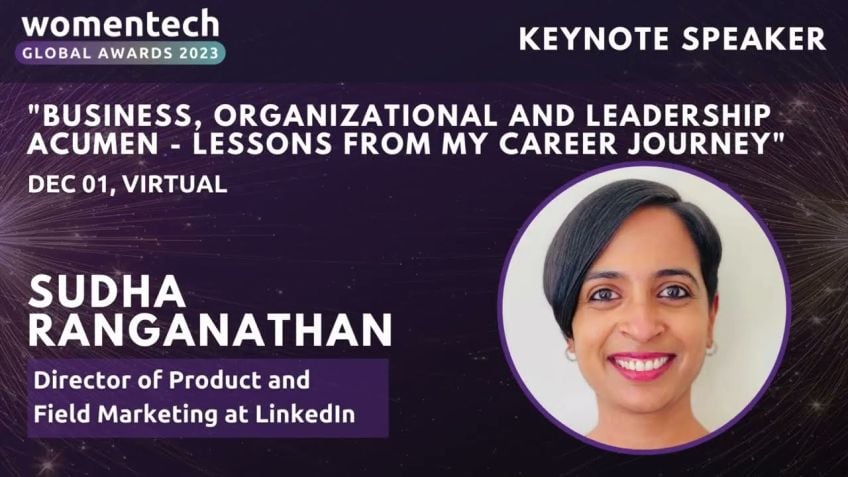Nikhita Venkatesh Career Growth and Development - Machine Learning
The Road to Career Development and Growth in Machine Learning: An Insightful Guide
Hi there, I'm Nikita, a data warehouse engineer, and the CEO at AI Alchemy, where I've been able to combine my interest in teaching with my passion for machine learning. Today, I'm excited to discuss a topic close to my heart: the career growth and development opportunities in the remarkable field of machine learning.
Understanding Machine Learning Career Options
Firstly, it's essential to understand the varied career options that machine learning offers. Machine learning presents a multitude of job roles such as Data Analyst, Data Scientist, Machine Learning Engineer, AI Engineer, Computer Vision Engineer, NLP Engineer, Deep Learning Engineer, and Analytics Consultant, to mention a few.
All these job roles, while distinct, ultimately link back to machine learning- the parent concept.
Stepping into a Career in Machine Learning
For those keen on starting a career in machine learning, using an academic approach is a good starting point. Platforms like Kegel provide invaluable resources, including competitive challenges and diverse data sets from various companies. Working on machine learning projects here not only strengthens your skills but also bolsters your resume.
The Advantage of Being a Professional
As an experienced professional, you may already have exposure to domain-specific data- a definite advantage in this field. A comprehensive understanding of the data can pave the way for a transition into machine learning. Start by exploring machine learning concepts and using data preprocessing techniques. The ultimate aim is to build your profile, thereby, preparing yourself to confidently apply machine learning algorithms to the data at hand.
Choosing the Right Machine Learning Course
For those who are unsure about how to begin their journey into machine learning, the first step would be to choose the right course. Keep in mind that, while theoretical knowledge is crucial, practical understanding is equally, if not more, important. I would recommend looking for courses that provide practical, industrial experience alongside the learning material. Sites like AI Alchemy offer such courses catered to the individual's prior experience and knowledge.
Creating an Impressive Machine Learning Resume
- Personal details: Include your name, contact number, GitHub ID, and LinkedIn ID.
- Profile Summary: This is crucial. Make sure your summary highlights your past experiences and your technical and interpersonal skills.
- Work or academic projects: State your project details, role, tools used, and importantly, the results obtained or the problem that was solved.
- Skills: Mention both technical and interpersonal skills.
- Education: List out your educational qualifications.
- Achievements: Don't forget to jot down your accomplishments and volunteering experiences if any.
Remember, honesty is vital when writing your resume. Avoid listing skills or experiences that you don't have.
Presenting a Professional Resume and LinkedIn Profile
Your resume and LinkedIn profile should be an accurate and concise reflection of your skills and experiences. Stick to a professional font like Times New Roman with a size of 12 points for consistency. Allocate the skills you're confident about and try to limit your resume to one or two pages. Always ensure to highlight your most significant points as employers usually skim through the resume.
Contact Me
If you have any queries or need help with preparation for an interview or creating a resume, do not hesitate to reach out to me. As an expert in getting you ready for a successful machine learning career, I'm here to assist you at any step of your learning journey.
Video Transcription
Yeah, hi, everyone. This is Nikita and I'm a data warehouse engineer, Clears team and as well as uh I'm also working as a CEO uh with uh a alchemy because my interest towards teaching.So that is why uh teaching that to in machine learning had made me end up there. So, yeah, so today's my topic would be about, you know, career growth and development in machine learning. So let's let's actually try to understand, you know, how, how important is it to, you know, start your career and uh and even uh trans in your career from, you know, software developer or any other platform to, you know, machine learning, how, how do you do that and all those stuff?
So I'll give you a gist about it today. So, first of all, let's understand, you know that what are the career options that you know, machine learning has? So there are many jobs like, you know, uh data analyst, data scientist, machine learning engineer A I engineer, computer vision engineer N LP engineer and you also have data and learning engineer and sorry, deep learning engineer and also uh analytics uh consultant. So, oh OK, you have to mission learning and you're using the words deep learning, computer vision. N LP. Why am I using this? It's because, you know, the deep learning is the base of everything and all these are, you know, it's the parent is your demission learning and then all the others are your Children. So, so it's like that. So uh when it comes to data scientists, it's like, you know, mission learning with some statistics. So everything is has something or the other to do with machine learning. So that is why I say that all these roles, job roles comes under mission learning. So basically, OK, uh I want to start my career or I'm already a professional and you know, I want to uh uh you know, uh trans transform my career or transit, take a transition in my career and stuff. So what do I do about that?
So starting a career in uh machine learning, right? You have your academics. So uh when you are having your academics, you can use a platform like Kegel and you can actually uh use that to a maximum extent and start working on whatever you wanted to do like. So, so it's it's, it's, you know, you have to take go into the platform called Kegel. So Kegel is nothing but a data platform where you find the data sets and you find, you know, com competitive uh challenges and also uh you have different types of data sets from different companies. So you can just go there and explore the data and try working on it. So that comes as an academic, academic, you know, working on machine learning projects. So your resume says, oh fine, he has worked on machine learning. So yeah, we can see that he can, you know, he can end up with the junior data scientist role or JD, a data analyst role and all those stuff. So now I'm actually a professional already a professional. Oh, great. That is actually an advantage to you, I would say because you know, be either in a it domain or in another domain, like you know, the finance domain or insurance domain or automobile industry, anything.
So you you get to see some of the other data the every day in any, any of the domain you work with. So whenever you see the data, right, just try to understand what the data is actually. What does that mean and what are the columns and what are the data, dictionary definitions and all those stuff. So once you get all the listing of all definitions, right, you have a strong domain knowledge. So that is very, very important for a machine learning engineer to have a strong domain knowledge. So that would be an add on to your career. So once you have a domain knowledge, you can just go ahead and you know, you can just explore what kind of machine learning concepts are there. And however you start, you know, using uh data preprocessing techniques and stuff. So, so basically you have a domain knowledge. When you're having you access to your data, you you are having access to the data, that is the biggest deal because the Freshers doesn't have the access to the real, real data and the you know, the companies that will be using. So as a as a professional, you are having an added advantage with that. So you make use of it.
So once you have a great grip on that data, go to your manager, just tell them that, you know, yeah, I have seen some data and I would like to visualize it and you can start your career from there and once you are very confident enough, so then you can actually move on to your machine learning team or you can just ask your manager and you know, uh say that I can use this data and do a machine learning algorithm and stuff.
And so that is how you can build up your profile. So you cannot expect you to, you know, straight for straight away sa or your uh in uh machine learning with the concepts that you have learned because they the person who is going to an ask you an interview, like he'll be like, OK, you have done this. What did you do in your carrier as part of, you know, data? Did you try to do any uh research or something with that. So, so I would say if you have done that, then it is an add on for your profile as well. So that is the reason I'm giving you this hint. So there's a confusion like, OK, now I know that I want to start machine learning and where do I go? What, what the, what course do I have to have to take? Because there are many courses like uh you have many platforms which are dealing with online courses. And so what I would suggest to you is, you know, you have to have a practical knowledge along with the theory. So that's very, very important. So uh you, you have a theoretical knowledge and you don't have practical knowledge, then it's very difficult for you to, you know, face an interviewer or even face the data that is there in front of you. So, so just make sure that you have a practical knowledge.
And not only that if you are getting an industrial experience with, with the knowledge that you have gained like maybe your internship or maybe a data set that is given for you to work or on which is action industrial data. It, so I would say about a alchemy, right? We have our A R alchemy and we actually ensure to uh give such kind of courses. And not only that we ensure, like for example, if a student is coming from a background of uh statistics. So we we, we help him to, you know, build his career via statistic machine learning. So he, he already has some experience with prior experience with his own knowledge. And also we give an add on to what he has. So we try to find out he or she, whoever is coming in front of us to we just understand what is the requirement of her. And then we just try to uh you know, tell her that, you know, this is what, you know, and this is how we can combine and get it. Not. But so that is why my suggestion would be air alchemy. So now that, you know, you have known to take up a course, you have known what to study and, you know, have to have, have to choose a course.
And now let's assume that you have, you know, you have gone through everything and you are, you're pretty much set, set and everything is done. Now, how do I actually show my resume? How does my resume look like? How should it look like? So I had many of them, you know, having these questions on their mind and I have already helped, you know, 400 plus people, uh you know, making their resumes. So, so I would, I would out of my experience, whatever I have seen and uh whatever I have suggested, people, I will be sharing that today with you all. So, first of all, right. The personal details are very important. So you need to give your name, your github ID, your contact number, your linkedin ID. And then not only that apart from that, you need to give, you know, if you are going abroad to do your education. So you, I would suggest that you have to pro provide a sentence stating that you have a long term visa. If you would have vi visa type mention that and say that, you know, I'm able to work without a visa. So, so the recruiter know actually knows, ok, he has to, he has to not do, he, he has nothing to do with the visa, visa work. So that that makes his life easier, right?
So that is very important while you're giving your personal details and then coming to your second point, that would be your summary of your profile. So I'll just go into detail in the next coming slides. So that thing and then you have your work experience for the professionals and the academic ex projects for the freshers and then your technical skills, your interpersonal skills. I've seen many uh resume is, you know, who have mentioned their technical skills, but they're they're not bothered to mention their interpersonal skills. No, you have to mention that because the recruiter should know what, what are your strong areas apart from your technical skills.
So just ensure that you mention your tech info uh interpersonal skills as well. So and then you have to mention your education and then you mentioned your volunteering or your achievements that you have done. So even that is also important, like you know, you have academics and what have you done for the society? If you have done something, please please go ahead and let the employer know it, know about it because even every corporate company has a CS R activity, which is actually an important thing for the society. So you have to men mention those kind of activities as well. So like I've discussed with you about the personal details. So you have your name, your email ID, your phone contact number, your address address need not be the complete address you can just give, you know, a gist of what uh city and what town or what country you are into. That is fine and then you have your linkedin profile, your github if you have a github and yeah, your Kegel profile because your data scientist, maybe your graph have built your Kegel and something. So everything related to your technical thing, you can have those links there.
And like I mentioned, mentioned about your visa status as well if you're you know abroad and you want to get a job. So come to the summary, right? You could you, I've seen many of them, you know, putting um uh big paragraphs or just a single sentence uh which says that, you know, I'm a master's graduate, I'm looking for uh this role. I would actually suggest that. Yeah, it is good to let them know what you are looking for, but you have to let them know like regarding your previous experiences and regarding your technical and interpersonal skills as well in your summary. So I would say that you can have 2 to 3 bullet points and then have whatever you have on your um summary. So once a person say takes up your resume and you have to see the summary and understand. Oh OK. She or he knows this. So OK, I will go ahead and uh he's a match for our profile. So we can go ahead with an interview. So they don't have much time to read all your resume, right? So if somebody has to speak for them, so then coming to your work experience or academic projects, I've seen many resumes. They have mentioned what tools they have worked on and uh what kind of uh language they have worked on. Yeah, that's very good.
But what did it solve or what was the result attained from it? So these two problems problem and the uh result that is achieved. So that is very, very important because at the end of the day, your employer needs to see what goals you have achieved. Because even after you're going to your going to any other company or you are actually going to s you know, say that, you know, I had this problem statement, my approach towards it was this and uh so I had some failures there. So after that, I uh we tried the better approach and then we got a result and my results are these and this is what I have achieved out of it. So it's very important to articulate what was the problem statement, what was the approach taken and what was the result that is applying? So that is how it would be, you know, it, it is good that you articulate things in that way. So yeah, so I've seen many of them, you know, putting uh my, all the skills they have. Yeah, that's good. But are you confident about it? Are you really confident about it? Just think about it because we cannot put all the skills that are there on the resume which we are not confident about. If you're not able to answer one or two questions that then it is fine. Yeah, everybody makes mistakes. Yeah, it's fine. You can learn from that.
But if you're not able to answer even a single question about what is asked, 00 then it's very bad. So that's why I would suggest, you know, you have to put only the skills that are con that you're very confident about and you should not lie in your resume. Don't ever lie on your resume. Because for example, you have a programming language called Python and Java and you know, Python. So very well, and you don't know Java and you have mentioned Java there and if the interviewer sitting there knows only Java, then in, you have to, you know, the interview starts asking questions in Zaba when, when the starting impression is not good, then he, he doesn't have uh you know, a vision to continue with the um uh interview.
So, so it's very difficult nowadays to, you know, end up with an interview. But if we end up in an interview, we have to give 100% to, you know, grab that job. So I would say just put your confidence skills onto it and don't put every uh all all the things you know, which are seen in the job description. So I have many questions from people regarding the font and page con. So I thought it's important for me to discuss about that as well. So times new Roman 12 font is recommended. Yeah, you can have different fonts as well, which are, you know, like, um professional enough to see, but ensure that your complete resume should be only in that font. You don't have several fonts onto it. Because whenever, whenever the re uh recruiter sees the resume, he feels like, oh, what is this? So there's no uniformity uh on your resume. So just ensure that you have a uniformity on, on your resume as well, that's very, very important and also have the number of pages of CV uh on your resume to be, you know, uh, uh, so it's, it says that you need to have one or two pages on your, uh, CV, because if, if it's extending more than two pages, right.
No, one ends up seeing all the pages. So let's make the resume crisp. And we, we are going to, the recruiter has only 10 to 30 seconds to view your resume and in that way, 10 to 20 seconds you are, you're supposed to attract him to the maximum that, you know, he wants to see your complete resume. So just ensure to have all the important points in your resume and rest, all you can very well, you know, talk in the interview while you have a chance to talk to them. So that is the, that is the part what I wanted to mention. So yeah, the sample resume, you know, just have your uh profile here. If you don't think that you have a bullet point, you can just have a short paragraph of, you know, 8 to 10 lines and then you can have your uh his employer's history, your academics and then you can have your skills set and then you can have your volunteers or achievements that you have and then you can put your uh reference available on request.
Yeah, you need not mention the reference all the time. So you can just put, you know, reference on request. And yeah, that is that, that is pretty much about it. So, so this is how your resume should look like. And if you could make it in a single page, that's very good for the people with more experience, right? They end up putting in two re two pages. That is also good because you have more and more experience and you can put it in two pages. Yeah, so not only the resume, you can have your linkedin profile as well, you know, uh with all the skill sets and with all your um uh uh summary points, which is there about you and all that like, you know, what have you have done in your resume as well. So, so thank you so much. And if you have any queries, you can let me know and you can reach out to me at any point of time on my linkedin and also with the A I alchemy linkedin. So I'm, I'm always there to help you out with uh your interview preparation, your resume preparation or you know, any courses that you want to take for machine learning. I'm actually there for you, there, there to help you out.





